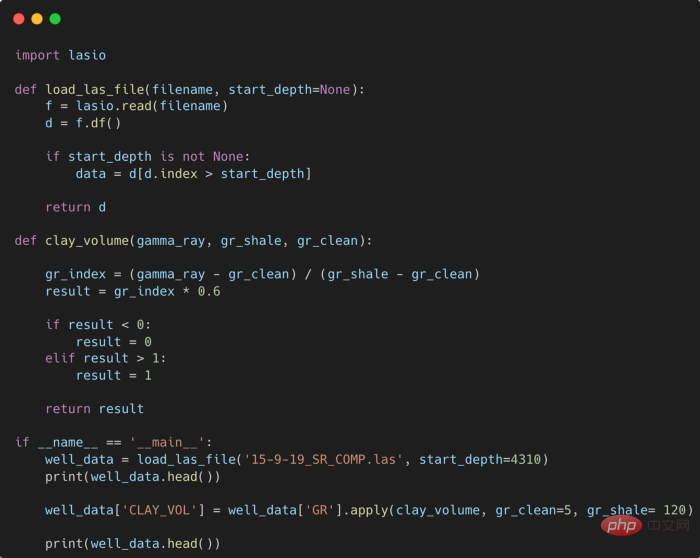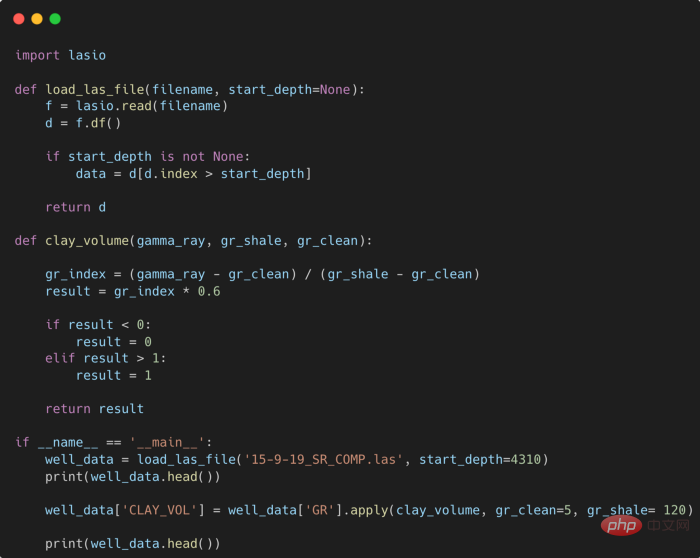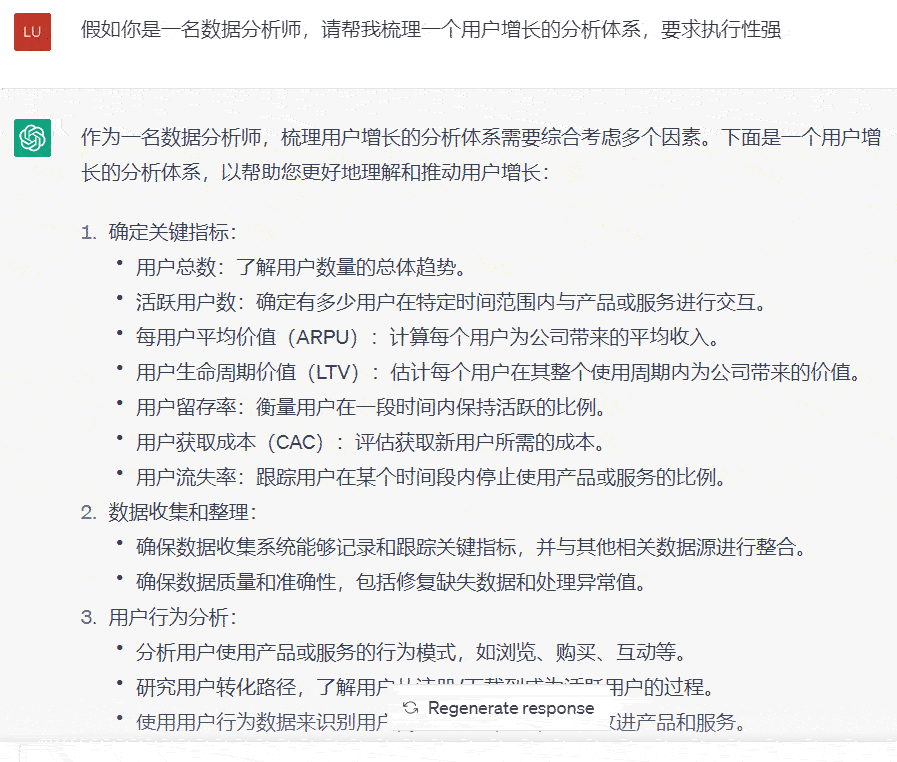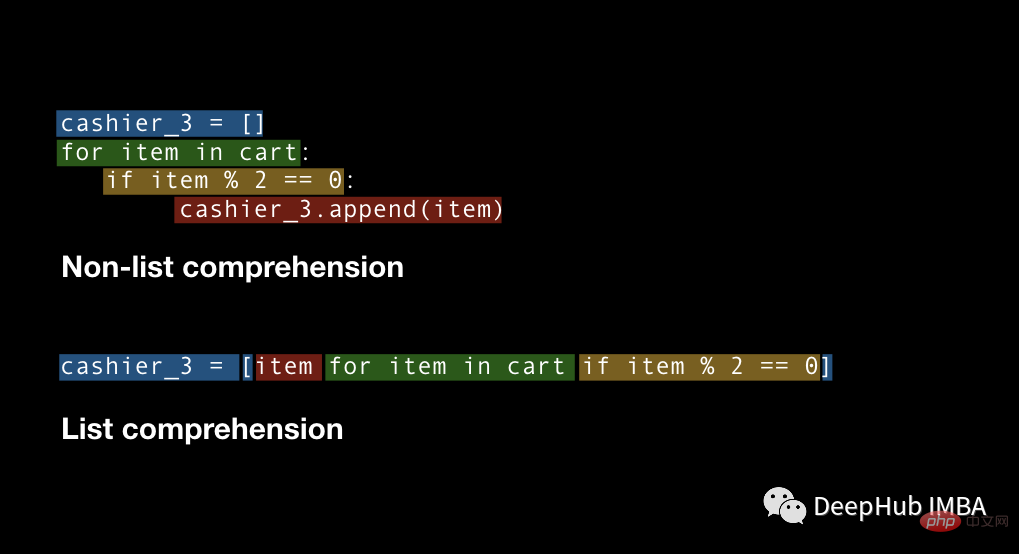
C language pointer analysis: the role and usage skills of pointers
Introduction:
In C language, pointers are a very important concept and feature. It enables programs to dynamically manage memory and data, improving program flexibility and efficiency. This article will delve into the role and usage techniques of pointers, and deepen understanding through specific code examples.
1. The concept and role of pointers
A pointer is a variable whose value is the address of another variable. Simply put, a pointer stores the memory address of another variable through which the variable can be directly accessed and manipulated. The main functions of pointers are as follows:
- Memory management: Pointers can dynamically allocate and release memory. By dynamically allocating memory, we can create data structures such as arrays and linked lists while the program is running, improving the flexibility of the program.
- Passing parameters: Through pointers, complex data structures can be passed between functions, avoiding data copying and improving program efficiency.
- Accessing arrays and strings: Through pointers, you can easily access the elements of arrays and strings and perform a series of operations, such as sorting, searching, etc.
- Function pointer: Pointer can also be used to store the address of a function. Operations such as callback functions and dynamic calling functions can be implemented through function pointers.
2. Basic use of pointers
In C language, the declaration and use of pointers are very simple. The following are some commonly used pointer operations:
- Declaring a pointer: You can use an asterisk () to declare a pointer variable, such as int ptr; declares a pointer to an integer variable pointer ptr.
- Address operation: Use the address symbol (&) to assign the memory address of the variable to the pointer variable, such as int a = 10; int *ptr = &a; assign the address of variable a to the pointer ptr.
- Dereference operation: Use the asterisk () to access the value of the memory address pointed to by the pointer, such as int a = 10; int ptr = &a; printf("%d", *ptr); will output the value of variable a.
- Arithmetic operations on pointers: You can perform arithmetic operations on pointers, such as pointer addition, pointer subtraction, etc. Their results are in units of the type pointed to by the pointer.
3. Example 1: Dynamic allocation of memory
Dynamic allocation of memory refers to dynamically allocating a memory space for variables when the program is running. In C language, you can use the malloc function to dynamically allocate memory. The following example demonstrates how to dynamically create an integer array:
#include <stdio.h>
#include <stdlib.h>
int main() {
int size;
printf("请输入数组的大小:");
scanf("%d", &size);
int *arr = (int *)malloc(size * sizeof(int));
if (arr == NULL) {
printf("内存分配失败!");
return 1;
}
for (int i = 0; i < size; i++) {
arr[i] = i;
}
for (int i = 0; i < size; i++) {
printf("%d ", arr[i]);
}
free(arr);
return 0;
}In the above code, we first obtain the array size entered by the user through the scanf function. Then, use the malloc function to allocate a memory space and cast it into an integer pointer. Afterwards, we can access and manipulate the array through subscripts just like a normal array. Finally, the allocated memory space is released through the free function.
4. Example 2: Passing pointer parameters
Passing parameters through pointers is a common technique in C language, which can avoid the overhead of copying and transferring data and improve the efficiency of the program. The following example demonstrates how to swap the values of two variables through pointers:
#include <stdio.h>
void swap(int *a, int *b) {
int temp = *a;
*a = *b;
*b = temp;
}
int main() {
int num1 = 10, num2 = 20;
printf("交换之前:num1 = %d,num2 = %d
", num1, num2);
swap(&num1, &num2);
printf("交换之后:num1 = %d,num2 = %d
", num1, num2);
return 0;
}In the above code, we define a function named swap to swap two integer pointers by passing them The value of the variable. In the main function, we use the address operator & to obtain the address of the variable and pass it to the swap function to exchange variable values.
5. Summary
This article introduces the concept, function and usage skills of pointers through detailed code examples. Pointers are a very important C language feature that are often used when writing C programs. By flexibly using pointers, we can better manage memory and data and improve program efficiency and flexibility.
I hope the introduction in this article can help readers better understand and use pointers and apply them in actual programming.
The above is the detailed content of Analyze the functions and techniques of pointers in C language. For more information, please follow other related articles on the PHP Chinese website!
 提高 Python 代码可读性的五个基本技巧Apr 12, 2023 pm 08:58 PM
提高 Python 代码可读性的五个基本技巧Apr 12, 2023 pm 08:58 PMPython 中有许多方法可以帮助我们理解代码的内部工作原理,良好的编程习惯,可以使我们的工作事半功倍!例如,我们最终可能会得到看起来很像下图中的代码。虽然不是最糟糕的,但是,我们需要扩展一些事情,例如:load_las_file 函数中的 f 和 d 代表什么?为什么我们要在 clay 函数中检查结果?这些函数需要什么类型?Floats? DataFrames?在本文中,我们将着重讨论如何通过文档、提示输入和正确的变量名称来提高应用程序/脚本的可读性的五个基本技巧。1. Comments我们可
 使用PHP开发直播功能的十个技巧May 21, 2023 pm 11:40 PM
使用PHP开发直播功能的十个技巧May 21, 2023 pm 11:40 PM随着直播业务的火爆,越来越多的网站和应用开始加入直播这项功能。PHP作为一种流行的服务器端语言,也可以用来开发高效的直播功能。当然,要实现一个稳定、高效的直播功能需要考虑很多问题。下面列出了使用PHP开发直播功能的十个技巧,帮助你更好地实现直播。选择合适的流媒体服务器PHP开发直播功能,首先需要考虑的就是流媒体服务器的选择。有很多流媒体服务器可以选择,比如常
 提高Python代码可读性的五个基本技巧Apr 11, 2023 pm 09:07 PM
提高Python代码可读性的五个基本技巧Apr 11, 2023 pm 09:07 PM译者 | 赵青窕审校 | 孙淑娟你是否经常回头看看6个月前写的代码,想知道这段代码底是怎么回事?或者从别人手上接手项目,并且不知道从哪里开始?这样的情况对开发者来说是比较常见的。Python中有许多方法可以帮助我们理解代码的内部工作方式,因此当您从头来看代码或者写代码时,应该会更容易地从停止的地方继续下去。在此我给大家举个例子,我们可能会得到如下图所示的代码。这还不是最糟糕的,但有一些事情需要我们去确认,例如:在load_las_file函数中f和d代表什么?为什么我们要在clay函数中检查结果
 PHP中的多表关联查询技巧May 24, 2023 am 10:01 AM
PHP中的多表关联查询技巧May 24, 2023 am 10:01 AMPHP中的多表关联查询技巧关联查询是数据库查询的重要部分,特别是当你需要展示多个相关数据库表内的数据时。在PHP应用程序中,在使用MySQL等数据库时,多表关联查询经常会用到。多表关联的含义是,将一个表中的数据与另一个或多个表中的数据进行比较,在结果中将那些满足要求的行连接起来。在进行多表关联查询时,需要考虑表之间的关系,并使用合适的关联方法。下面介绍几种多
 Python中简单易用的并行加速技巧Apr 12, 2023 pm 02:25 PM
Python中简单易用的并行加速技巧Apr 12, 2023 pm 02:25 PM1.简介我们在日常使用Python进行各种数据计算处理任务时,若想要获得明显的计算加速效果,最简单明了的方式就是想办法将默认运行在单个进程上的任务,扩展到使用多进程或多线程的方式执行。而对于我们这些从事数据分析工作的人员而言,以最简单的方式实现等价的加速运算的效果尤为重要,从而避免将时间过多花费在编写程序上。而今天的文章费老师我就来带大家学习如何利用joblib这个非常简单易用的库中的相关功能,来快速实现并行计算加速效果。2.使用joblib进行并行计算作为一个被广泛使用的第三方Python库(
 Go语言中的网络爬虫开发技巧Jun 02, 2023 am 09:21 AM
Go语言中的网络爬虫开发技巧Jun 02, 2023 am 09:21 AM近年来,随着网络信息的急剧增长,网络爬虫技术在互联网行业中扮演着越来越重要的角色。其中,Go语言的出现为网络爬虫的开发带来了诸多优势,如高速度、高并发、低内存占用等。本文将介绍一些Go语言中的网络爬虫开发技巧,帮助开发者更快更好地进行网络爬虫项目开发。一、如何选择合适的HTTP客户端在Go语言中,有多种HTTP请求库可供选择,如net/http、GoRequ
 使用一个神器的指令,能迅速让你的GPT拥有智慧!May 09, 2023 am 08:13 AM
使用一个神器的指令,能迅速让你的GPT拥有智慧!May 09, 2023 am 08:13 AM今天给大家分享二个小技巧,第一个可以增加输出的逻辑,让框架逻辑变的更加清晰。先来看看正常情况下GPT的输出,以用户增长分析体系为例:下来我给加一个简单的指令,我们再对比看看效果:是不是效果更好一些?而且逻辑很清晰,当然上面的输出其实不止这些,只是为了举例而已。我们直接让GPT扮演一个资深的Python工程师,帮我写个学习计划吧!提问的时候只需后面加以下这句话即可!let'sthinkstepbystep接下来再看看第二个实用的指令,可以让你的文章更上一个台阶,比如我们让GPT写一个述职报告,这里
 四种Python推导式开发技巧,让你的代码更高效Apr 22, 2023 am 09:40 AM
四种Python推导式开发技巧,让你的代码更高效Apr 22, 2023 am 09:40 AM对于数据科学,Python通常被广泛地用于进行数据的处理和转换,它提供了强大的数据结构处理的函数,使数据处理更加灵活,这里说的“灵活性”是什么意思?这意味着在Python中总是有多种方法来实现相同的结果,我们总是有不同的方法并且需要从中选择易于使用、省时并能更好控制的方法。要掌握所有的这些方法是不可能的。所以这里列出了在处理任何类型的数据时应该知道的4个Python技巧。列表推导式ListComprehension是创建列表的一种优雅且最符合python语言的方法。与for循环和if语句相比,列


Hot AI Tools

Undresser.AI Undress
AI-powered app for creating realistic nude photos

AI Clothes Remover
Online AI tool for removing clothes from photos.

Undress AI Tool
Undress images for free

Clothoff.io
AI clothes remover

AI Hentai Generator
Generate AI Hentai for free.

Hot Article

Hot Tools

Dreamweaver CS6
Visual web development tools

Zend Studio 13.0.1
Powerful PHP integrated development environment

SAP NetWeaver Server Adapter for Eclipse
Integrate Eclipse with SAP NetWeaver application server.

mPDF
mPDF is a PHP library that can generate PDF files from UTF-8 encoded HTML. The original author, Ian Back, wrote mPDF to output PDF files "on the fly" from his website and handle different languages. It is slower than original scripts like HTML2FPDF and produces larger files when using Unicode fonts, but supports CSS styles etc. and has a lot of enhancements. Supports almost all languages, including RTL (Arabic and Hebrew) and CJK (Chinese, Japanese and Korean). Supports nested block-level elements (such as P, DIV),

Atom editor mac version download
The most popular open source editor






